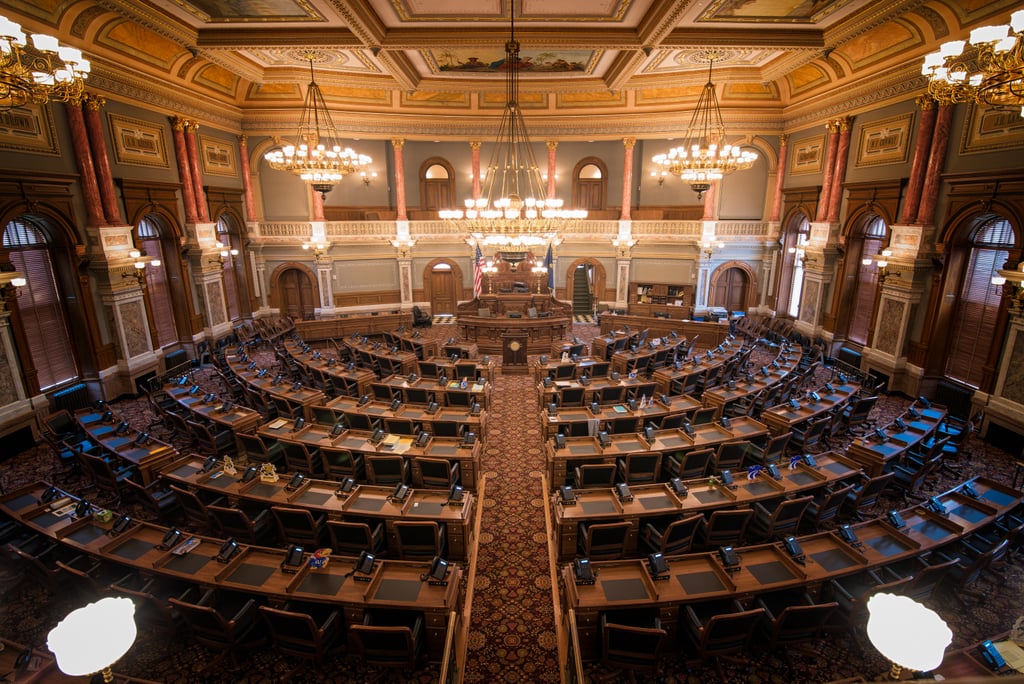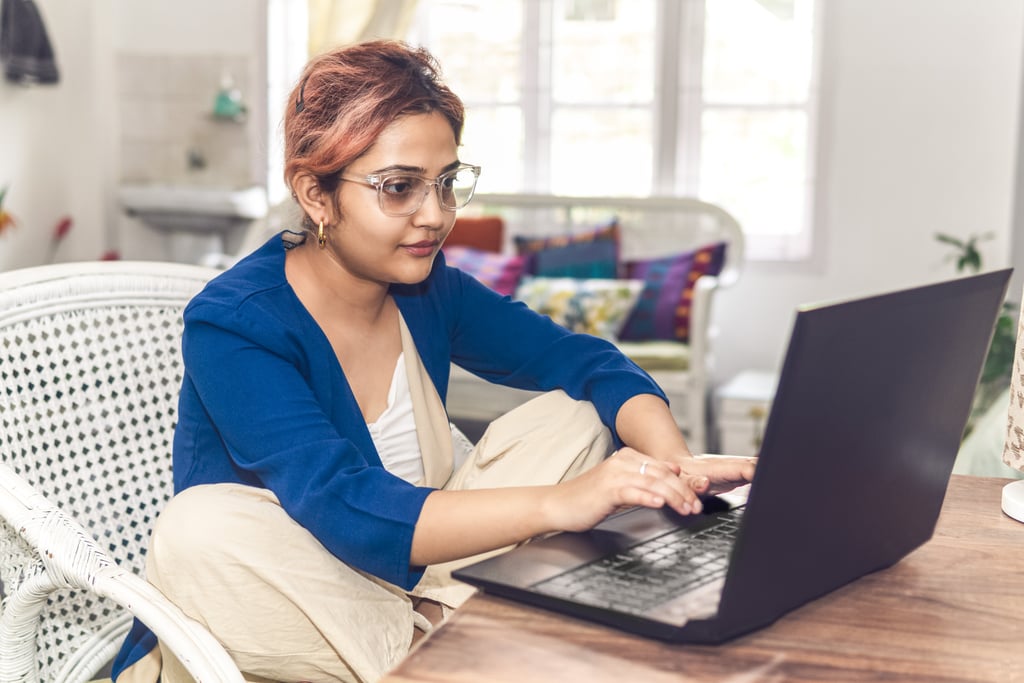The last year has been difficult for all of us. Not only have we seen coronavirus [1] bring the world to a standstill, but our country has struggled with economic hardship, conspiracy theories, a siege on the Capitol [2], racial injustices, and acts of mass violence [3]. With all of this happening, I started to feel a little fire of anger every time I listened to the news. It felt like not only was everything so out of control, but that there was nothing I could do about it.
That's how I was feeling the evening of election day last November, when I was checking the news every few hours and waiting for Nevada to count their votes. I didn't know how the election would turn out, but I decided I had to figure out what I could do besides getting angry. No matter who won the election, I told myself, I was going to stop paying so much attention to all the things that were outside of my own control, and start figuring out what was within my own circle of influence.
Since that night, I've started learning how I can be politically active — even when, like this year, it's not an election year. I'm still new at this, and have a lot to learn. But I wanted to share a few things I've been doing that have helped me feel empowered instead of angry when it comes to our country's political process.
Find a Quality Source for Local and National News
The first thing I did in my effort to be more politically active was to find some high-quality sources for the news. In an age of clickbait and sensationalized headlines, finding a solid source for news makes a big difference. In particular, I decided I needed to consciously learn more about what's happening in my state (even though most news coverage is about the national level). I got familiar with a local newspaper, and even took the plunge and subscribed for $15/month. I'm learning a lot from the coverage, and I also feel good about supporting a local news organisation when they so often struggle.
National coverage still matters too, so I wanted to make sure I was getting high-quality information for that as well. I found out the library card from my local library allows me full access to the New York Times online. I've also started using websites like PolitiFact [4] and FactCheck [5] which look into news stories, quotes from politicians, internet rumours, and more, evaluating how truthful they are.
Taking some time to figure out high-quality news sources, as well as ways to evaluate what you're hearing, is a great first step to becoming more politically active.
Create a News Routine
Even after you've found good news sources, it can be challenging to keep up on it all. This is where creating some kind of habit or routine [6] comes in. My mom always sits down with the newspaper when she gets home from work. Personally, I've noticed that when I want some down time, I often end up scrolling mindlessly through Instagram or Pinterest. For me, that has been the perfect activity to replace with checking the news. It's also been helpful to just click on whatever stories sound interesting, rather than feeling like I have to carefully read about every issue.
Learn How Legislation Happens
Learning more about our country's legislative process was part of what made me want to become more politically active. Recently, I was taking a college class on healthcare, and the course's textbook had a chapter on how laws are made and how individuals can influence that process by connecting with lawmakers [7]. I didn't learn much at all about this process in school while growing up, and reading this chapter was eye-opening — and it made me excited to participate more in that process.
Spending a little time to learn more about this process can be an empowering way to start getting involved. Congress.gov [8] has a series of short videos about this exact thing, and is a great place to start.
Follow Your State's Legislative Session
When I was thinking about how to be more politically active, I thought about how it seems like local politics [9] often have a bigger effect on my day-to-day life than the big national efforts that get most of the news coverage. So, I decided to start paying attention to how local laws are made by tuning in during my state's legislative session.
I live in a state where the legislature meets for just 45 days every year, always starting in January, and this year was the first time I paid attention. I read lots of news during that time, and even found a podcast that followed along. I discovered I could make an account on my state legislature's website and look up legislation that was being considered during the session. I also found out who my representatives are, and sent several emails (more on that later).
I learned a lot about my state during this process. I used to be a public school teacher, and I've had some struggles with depression [10], so education and access to mental health care are probably the two issues I care the most about. I was surprised to find out these issues are actually quite popular across my state, with legislators introducing bills to try to improve both. I also learned that, unfortunately, there is also a lot of legislation that isn't using the time and resources of that 45-day period to actually make the lives of citizens better.
Overall, following the session helped me learn a ton about local politics, and made me want to become more and more involved in future sessions. Try it yourself if you're looking for a way to start!
Find Out Who Your Representatives Are, and Send Those Emails!
One of the simplest ways to be more politically active? Find out who your representatives are, and contact them about issues that matter to you. It only took me a few moments of googling to find my state representatives. And since I made a special effort to follow my state's legislative session this year, I was able to send my state reps several emails about the different issues and laws that came up during the session.
On the national level, you can find your state's senators on the US Senate website [11]. Click on a senator's name to find out about them, what legislation they've sponsored, the committees they serve on, and more, as well as how to contact them. The website for the US House [12] lets you find your representative by typing in your zip code. On this website, too, you can find out more about your representative by clicking on their name, which also shows you contact info.
On both the state and national level, representatives [13] are supposed to listen to the people who elect them: Us, the constituents. So find out who those people are for you, send an email, or try giving them a call.
When It Gets Too Overwhelming, Turn It Off and Come Back Later
Taking steps like finding high-quality sources for news and contacting my elected officials have helped me feel empowered rather than angry about our country's politics. But there are still moments where I feel frustrated with and bogged down by news and politics. I've learned that feeling is a cue to turn off the news, take a break, and practice some self-care [14]. Taking steps to be more politically active doesn't mean you have to burn yourself out. Instead, relaxing when you need it means you can do more over time.
I'm still learning how to take action when it comes to issues I care about. The steps I've taken so far feel pretty simple, but they also feel like they're just the beginning for me. I'm excited to keep going, keep learning, and keep participating. I believe in our country, and I believe that every-day individuals taking small steps can make it better.





